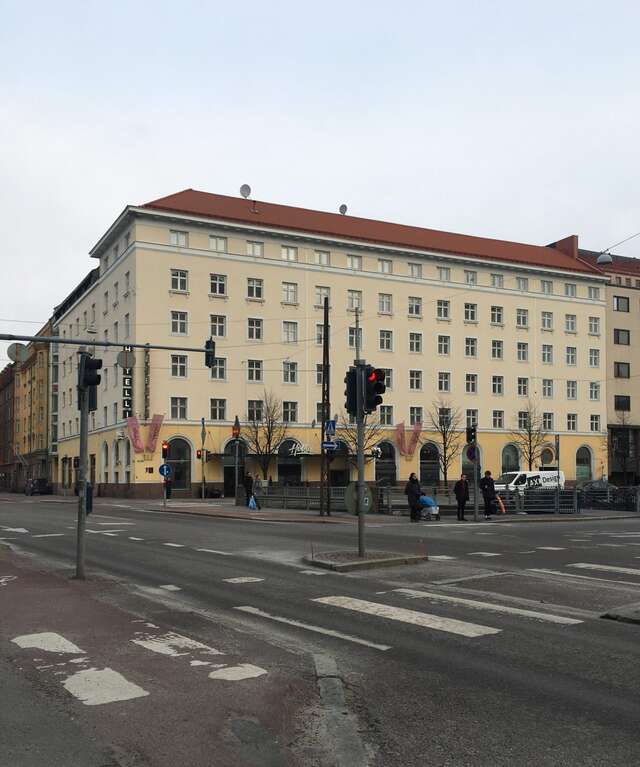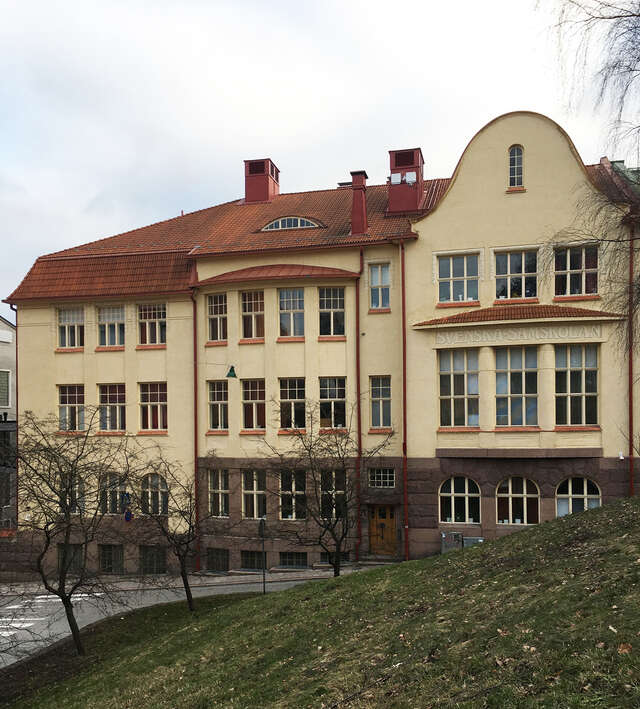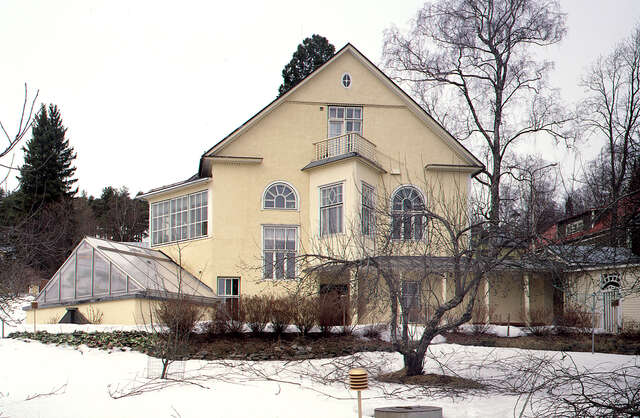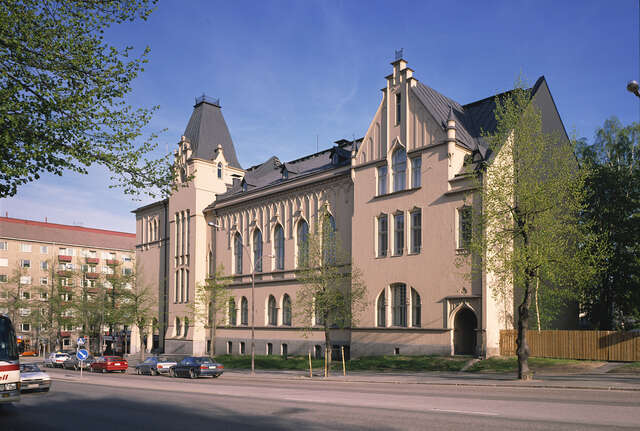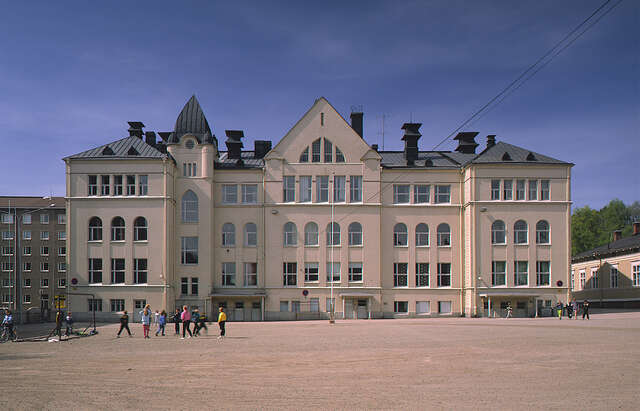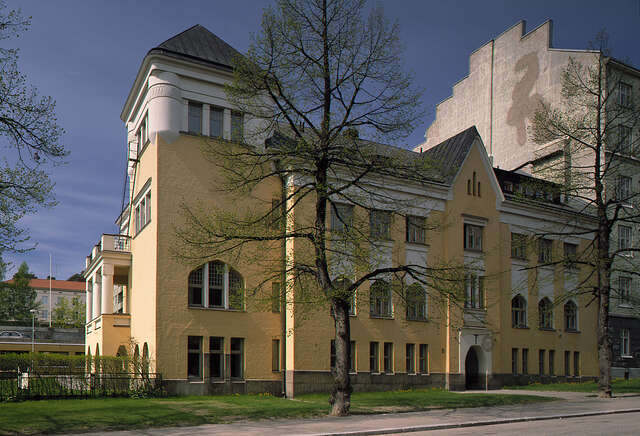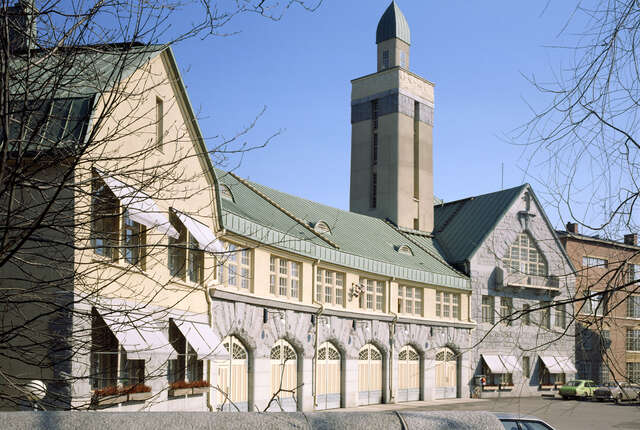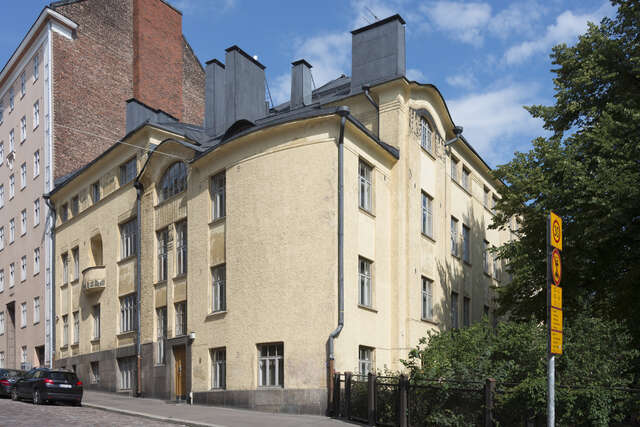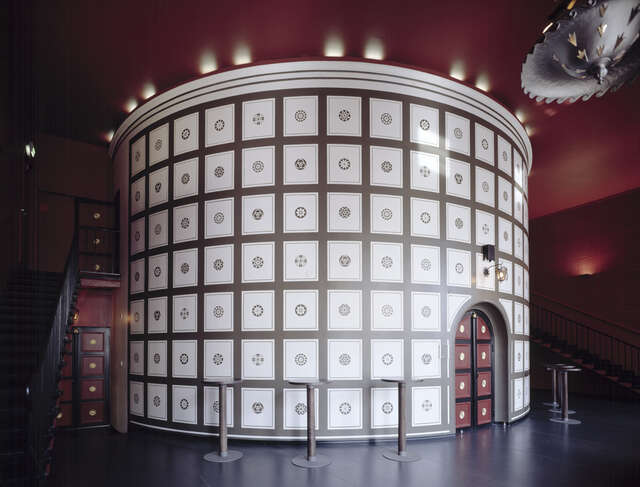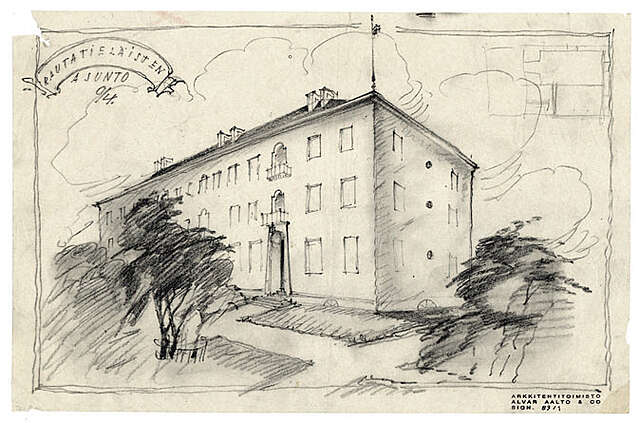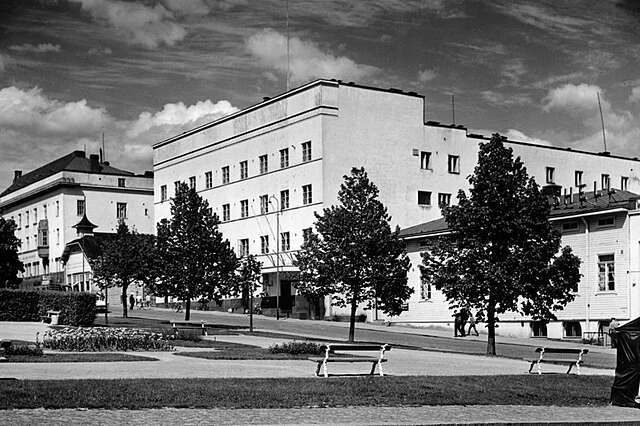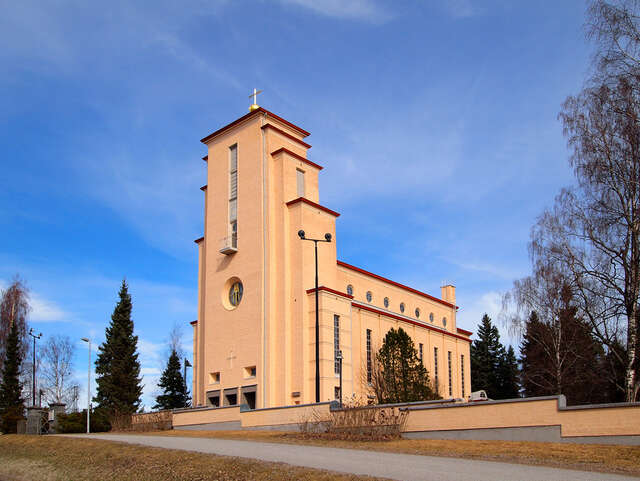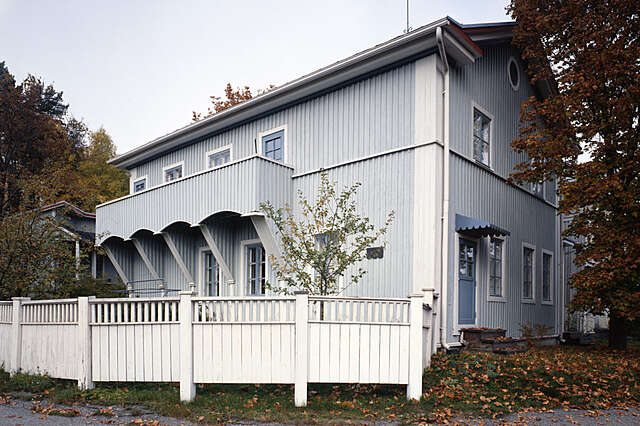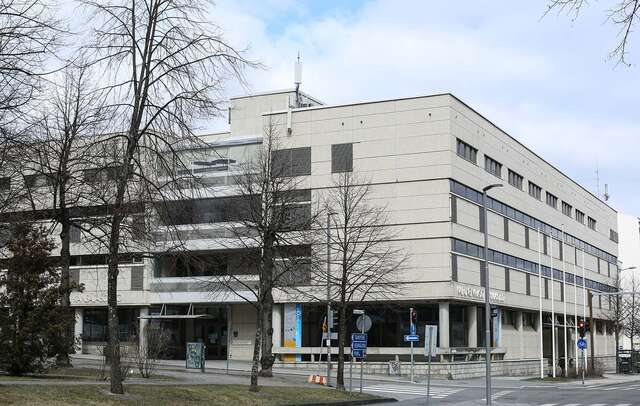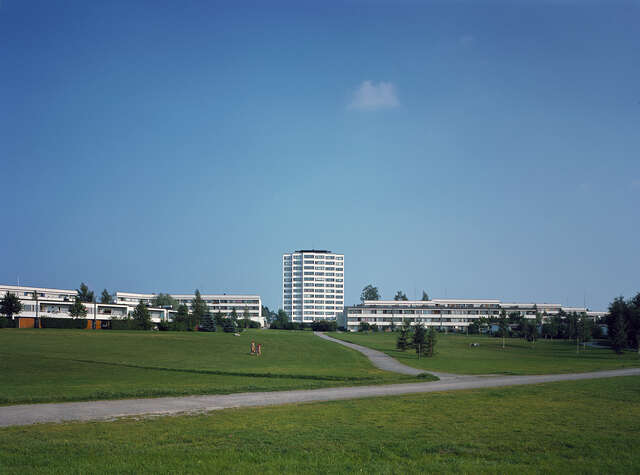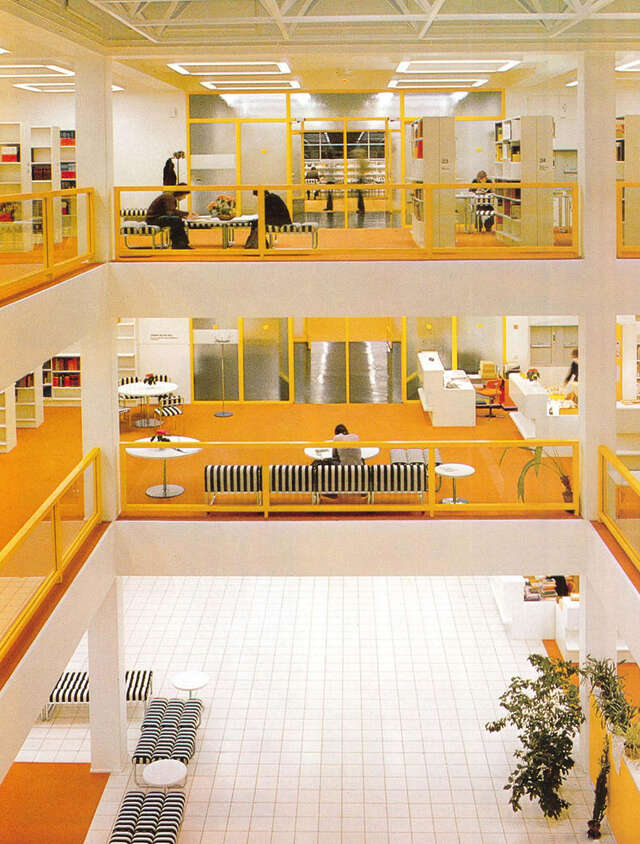Puistokoulu School
Puistokoulu School in Jyväskylä is a wooden art nouveau school building, situated on the north-east side of the city centre.
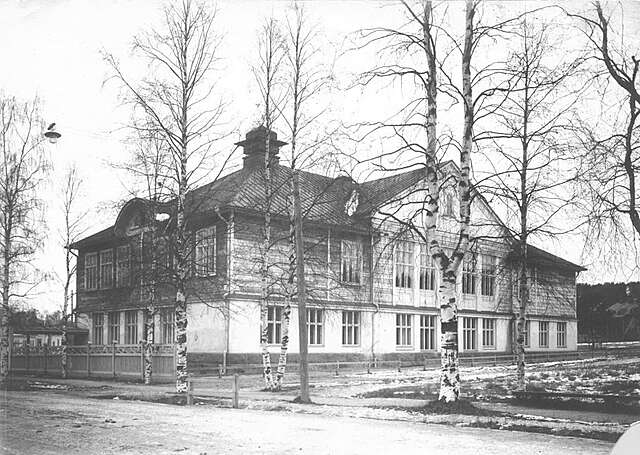
The building was designed by Wivi Lönn, the first female architect in Finland who was able to establish their own architectural practice. Apart from being an architect, Wivi Lönn was also a master builder. As an architect, she was specialised in structural questions. She designed one of the first reinforced concrete structures in Finland to Puistokoulu School. The two-storey school building was completed in 1912, and it was the first publicly funded school in Jyväskylä.
Wivi Lönn lived in Jyväskylä from 1911 to 1918. Her own villa and several other private villas, designed by her, are situated in Älylä district in the south-west side of the Jyväskylä city centre. The architectural style of Puistokoulu School is very similar to the art nouveau wooden villas. In Jyväskylä area, she also designed several buildings to the industrial community of Säynätsalo.
In later days, a mixed assortment of high-rise blocks has risen around Puistokoulu School, but thanks to its extensive site it has retained its character as a local landmark. The new extension, completed in 2010, further reinforces the school’s significance in the townscape. Based on an invited design competition held in 2008, the extension, designed by architect Sari Nieminen, compromises both additional facilities for the school as well as a daycare centre.
In order not to steal the leading role from Lönn’s building, architect Sari Nieminen kept the eaves line of the extension as low as possible, while the end of the extension is partly sunk on the sloping site. Additionally, the other end of the extension narrows down, leaving the south-west corner of the old building in plain view. As there was no certainty as to Lönn’s original colour scheme, Sari Nieminen decided for a black and white exterior with a range of greys employed in the interior – making the extension a neutral passepartout for the old school. Vivid colours in the interior are introduced in the interior by the bright curtains of the canteen. The rooms are organised along a corridor that winds its way through the building and widens out at the end facing the old building into an entrance hall that links the two floors. The building offers varied views across space at almost every step as you proceed.
The wooden school building’s refurbishment was completed in 2014.
Source: Kristo Vesikansa / Finnish Architectural Review 2/2011
Location
Puistokatu 7, Jyväskylä
Get directions